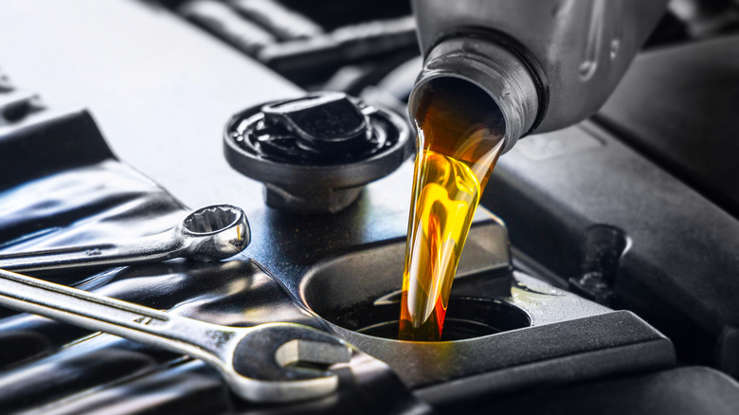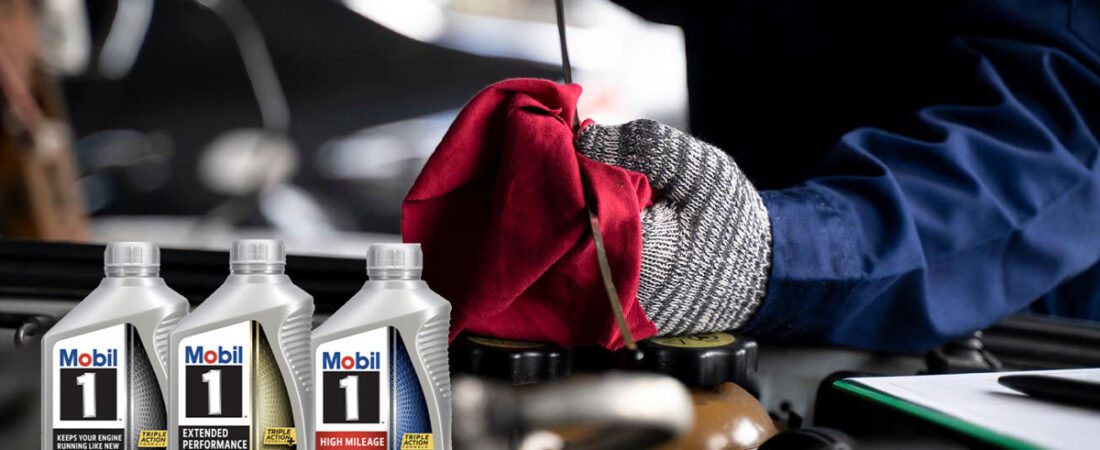Keeping an aging car running smoothly is no small feat. As your vehicle racks up miles, the engine starts to show signs of wear, from small oil leaks to reduced performance. That’s where high mileage motor oils come in.
In 2025, the market is filled with advanced formulations that go beyond basic lubrication—they’re designed to reduce engine wear, prevent leaks, and prolong engine life.
Whether you’re driving a 200,000-mile Toyota Camry or a well-worn Ford F-150, choosing the right oil can make all the difference. In this guide, we tested and reviewed the 7 best high mileage motor oils of 2025, so you can make an informed decision based on real-world performance and expert recommendations.
Why High Mileage Engines Need Special Oils
What is considered high mileage?
Generally, any vehicle with over 75,000 miles on the odometer is considered high mileage. At this point, internal engine components—gaskets, seals, and valves—start to degrade. This can lead to oil leaks, burning oil, and increased engine wear if not addressed properly.
Key differences in oil formulations
High mileage motor oils are specifically formulated with:
- Seal conditioners to rejuvenate worn gaskets and prevent leaks
- Extra detergents to clean sludge and buildup
- Anti-wear additives like zinc and phosphorus
- Viscosity stabilizers that perform well in older engines with looser tolerances
These oils are not just marketing gimmicks—they genuinely offer enhanced protection for aging engines, often backed by real-world results and lab testing.

Top 7 High Mileage Motor Oils in 2025
We tested and analyzed the most popular high mileage motor oils available in 2025 based on performance, protection, price, and customer satisfaction. Here are the top contenders that stand out for older engines.
1. Mobil 1 High Mileage Full Synthetic
Best Overall Protection
Mobil 1 consistently ranks as one of the top motor oils for all engine types, and their high mileage blend is no exception.
- Mileage range: 75,000+ miles
- Viscosity options: 5W-20, 5W-30, 10W-30
- Key Features:
- Advanced seal conditioners
- Exceptional sludge cleaning
- Great cold weather performance
- Pros:
- Excellent for daily drivers and highway use
- Long drain intervals (up to 10,000 miles)
- Cons:
- Slightly more expensive than competitors
Recommended for: Long-distance commuters, SUVs, sedans with over 100,000 miles.
- Slightly more expensive than competitors
2. Castrol GTX High Mileage
Best for Leak Prevention
Castrol’s proprietary “Seal Conditioning Technology” makes it a favorite among drivers with older engines prone to leaks.
- Mileage range: 75,000 – 200,000 miles
- Viscosity options: 5W-20, 5W-30, 10W-40
- Key Features:
- Phosphorus replacement additive for reduced wear
- Active cleaning agents
- Pros:
- Widely available and affordable
- Trusted brand reputation
- Cons:
- Not full synthetic (semi-synthetic blend)
Recommended for: Vehicles with minor leaks or oil consumption issues.
- Not full synthetic (semi-synthetic blend)
3. Valvoline MaxLife High Mileage
Best Budget Full Synthetic Option
Valvoline’s MaxLife formula delivers full synthetic protection at a price that rivals conventional blends.
- Mileage range: 75,000 – 150,000+ miles
- Viscosity options: 5W-30, 10W-30, 10W-40
- Key Features:
- Seal conditioners and anti-wear agents
- API SP and ILSAC GF-6 certifications
- Pros:
- Affordable full synthetic
- Excellent wear protection
- Cons:
- Slightly thinner film compared to premium brands
Recommended for: Budget-conscious owners of older sedans and light trucks.
- Slightly thinner film compared to premium brands
4. Pennzoil High Mileage Synthetic Blend
Best for City Driving
Known for its clean-burning formula, Pennzoil offers one of the best oils for urban stop-and-go traffic.
- Mileage range: 75,000+ miles
- Viscosity options: 5W-30, 10W-30
- Key Features:
- Made from natural gas (PurePlus Technology)
- High thermal stability
- Pros:
- Great for short trips and frequent starts
- Helps reduce engine noise
- Cons:
- Not ideal for extreme cold or long-haul driving
Recommended for: Daily urban drivers, hybrids, and compact cars.
- Not ideal for extreme cold or long-haul driving
5. Royal Purple HMX High Mileage
Best for Performance Engines
Royal Purple’s HMX series offers premium wear protection and boosts horsepower in older performance vehicles.
- Mileage range: 75,000 – 200,000+
- Viscosity options: 5W-30, 10W-30, 10W-40
- Key Features:
- Synerlec additive technology
- Enhanced oxidation resistance
- Pros:
- Excellent engine cleanliness
- Improved fuel economy in tests
- Cons:
- High price point
Recommended for: Performance cars, sports sedans, and tuned engines.
- High price point
6. Shell Rotella Gas Truck High Mileage
Best for High Mileage Pickups and SUVs
Originally designed for trucks, this oil is perfect for large vehicles past their prime.
- Mileage range: 100,000+ miles
- Viscosity options: 5W-30, 10W-30
- Key Features:
- Designed for high load and towing
- Anti-wear boosted for large displacement engines
- Pros:
- Built for stress and heat
- Superior durability
- Cons:
- Limited viscosity range
Recommended for: Full-size pickups, SUVs, and crossovers with high mileage.
- Limited viscosity range
7. AmazonBasics High Mileage Synthetic
Best Value for Money
While not a premium brand, Amazon’s synthetic oil delivers decent performance for casual drivers.
- Mileage range: 75,000 – 125,000 miles
- Viscosity options: 5W-30, 10W-30
- Key Features:
- Full synthetic formulation
- Budget-friendly pricing
- Pros:
- Excellent value for budget-conscious users
- Meets industry standards
- Cons:
- Less trusted brand among gearheads
Recommended for: Casual drivers and secondary vehicles.
- Less trusted brand among gearheads
How to Choose the Right Oil for Your Engine
Escolher o óleo certo não é apenas uma questão de marca — envolve entender especificações, certificações e as necessidades reais do seu motor com alta quilometragem.
Viscosity Grades Explained (5W-30, 10W-40, etc.)
Viscosity refers to how easily the oil flows at different temperatures. It’s represented by grades like 5W-30, where:
- “5W” means the oil flows like a 5-weight in cold weather (W = winter)
- “30” means the oil behaves like a 30-weight when the engine is hot
For high mileage engines, slightly thicker oils (like 10W-30 or 10W-40) can offer better protection by reducing internal leaks and oil burn-off.
Quick Tip:
✔️ Check your owner’s manual — but if your car has 100K+ miles and you’re noticing oil loss, upgrading to a higher viscosity may help.
Synthetic vs Conventional for High Mileage
Synthetic Oil:
- More stable at high and low temperatures
- Better protection over long intervals
- Resists sludge and breakdown
- Often more expensive
Conventional Oil:
- Cheaper upfront
- Needs more frequent changes
- Less effective at cleaning or sealing
For high mileage engines, full synthetic or synthetic blends are generally the best option, especially in 2025 where formulations are highly refined.
API and SAE Certifications to Look For
Always look for motor oils with certifications like:
- API SP / SN+: Latest standards for wear and deposit protection
- ILSAC GF-6: Designed for fuel efficiency and engine cleanliness
- SAE Viscosity Grades: Compliance with Society of Automotive Engineers standards
These certifications ensure the oil meets minimum quality and safety benchmarks required for modern engines — and help avoid damage in older ones.

Signs You Need to Switch to High Mileage Oil
Not sure if your car needs high mileage oil? Here are the most common signs that your engine could benefit from a specialized formula.
Oil Consumption and Leaks
One of the most noticeable symptoms in aging engines is increased oil consumption. If you’re topping off your oil between changes or notice puddles under your car, it’s a clear signal:
- Worn seals and gaskets may be leaking
- Older piston rings may allow oil to burn inside the engine
🛠 Solution:
High mileage oils include seal conditioners that help swell and restore these components, reducing leaks over time.
Engine Noise and Wear
Hearing ticking, knocking, or louder-than-normal engine noise? That’s often caused by:
- Thin oil film in high-heat or high-mileage conditions
- Increased friction between aging engine parts
Switching to a high mileage formula with anti-wear additives (like ZDDP) can reduce noise and help the engine run smoother.
Sludge Buildup and Performance Loss
Engines that have gone thousands of miles on cheaper oil often build up sludge — a thick, tar-like residue that clogs vital pathways.
Signs include:
- Loss of power
- Slow acceleration
- Check engine light
🛠 Solution:
High mileage oils contain detergents that gently clean this sludge and help restore engine efficiency.
🛑 Bonus Tip: If your vehicle has over 75,000 miles, chances are it’s already experiencing some of these issues — even if you haven’t noticed them yet.
Expert Tips to Prolong Engine Life
Using the right high mileage oil is a great start — but to truly protect your engine and keep it running for years, these expert maintenance practices are essential.
Oil Change Intervals for High Mileage Vehicles
While many synthetic oils claim to last up to 10,000 miles, that’s not always ideal for older engines.
Recommended intervals:
- Every 5,000 – 7,000 miles for full synthetic
- Every 3,000 – 5,000 miles for synthetic blends or conventional
- More frequent changes if the engine burns oil or has minor leaks
Always check your oil level monthly, especially in high mileage cars, and top off when needed.
Additives and Treatments Worth Considering
While not mandatory, some oil additives can offer extra protection in aging engines:
| Additive Type | Purpose |
|---|---|
| Seal Swellers | Rejuvenate rubber gaskets to reduce leaks |
| Detergents | Help clean sludge and varnish buildup |
| Zinc/ZDDP Boosters | Extra anti-wear protection for older parts |
| Friction Modifiers | Reduce wear, increase fuel economy |
⚠️ Use additives with caution — always ensure they’re compatible with your oil type and vehicle model.
When Oil Alone Isn’t Enough: Other Maintenance Tips
Engine oil plays a critical role, but other factors also contribute to engine health:
- Replace the oil filter every change — don’t reuse it
- Check PCV valve, which helps regulate pressure and oil flow
- Flush coolant system regularly to prevent overheating
- Monitor spark plugs and ignition timing for smoother combustion
- Avoid frequent short trips (which prevent oil from reaching full temperature)
🔧 Pro Tip: Bundle oil changes with routine inspections to catch small problems before they become major repairs.
Final Thoughts – Which Oil Is Best for You?
Choosing the right high mileage motor oil in 2025 comes down to your vehicle’s condition, driving style, and budget.
If you’re looking for:
- Best overall protection → ✅ Mobil 1 High Mileage
- Leak prevention → ✅ Castrol GTX High Mileage
- Budget-friendly synthetic → ✅ Valvoline MaxLife
- Performance engines → ✅ Royal Purple HMX
No matter your choice, remember: even the best oil won’t help if you’re skipping oil changes or ignoring early warning signs. Stick to a regular maintenance schedule, monitor your fluid levels, and listen to your engine.
Taking care of an older car doesn’t have to be expensive — it just needs the right products and consistent attention.
Whether you’re driving cross-country or just keeping your daily driver alive for a few more years, high mileage oils are your engine’s best ally.
Frequently Asked Questions
H3: What is considered a high mileage vehicle?
Typically, any car with over 75,000 miles is considered high mileage. However, some manufacturers now classify vehicles as high mileage starting around 60,000 miles, especially for smaller engines or heavy use.
H3: Can I use high mileage oil in a new car?
It’s not recommended. High mileage oils contain seal conditioners and detergents that are unnecessary in new engines, and could potentially interfere with optimal performance. Stick with regular or synthetic oil until your vehicle crosses 75,000 miles.
H3: Will high mileage oil stop leaks?
High mileage oil can reduce small leaks over time by rejuvenating seals, but it won’t fix major gasket failures or cracked components. If the leak is significant, a mechanical repair may still be needed.
H3: Is synthetic oil better for high mileage cars?
Yes, full synthetic oils offer better protection, resist breakdown longer, and help clean out sludge more effectively. For high mileage vehicles, synthetic or synthetic blends are generally superior to conventional oils.
H3: How often should I change oil in a high mileage vehicle?
It depends on the oil type:
- Synthetic: every 5,000–7,500 miles
- Blend or conventional: every 3,000–5,000 miles
Check your vehicle manual and monitor oil levels, especially if the engine is older or burns oil.
H3: Can switching to high mileage oil cause problems?
In most cases, no. But if your engine is already badly worn or full of sludge, the detergents in high mileage oil may dislodge deposits and clog the oil filter. If switching for the first time, monitor your engine closely after the change.
